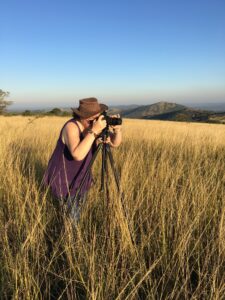In the realm of poetry, few voices resonate as deeply as that of Hanna Shebar. With her upcoming collection, Letters You Will Never Read, Hanna invites readers into the intimate corners of her heart, weaving stories of grief, healing, and resilience. Her words are a testament to the human spirit’s ability to transform pain into beauty, offering a beacon of hope to anyone navigating life’s challenges.
In this heartfelt interview, Hanna shares the deeply personal journey that inspired her latest work, the courage it takes to bare one’s soul, and the incredible power of creativity to heal and connect. Her story is a reminder that even in our darkest moments, there is light to be found—and the strength to carry on. Let her words inspire you to embrace your own story, find solace in your struggles, and create something beautiful out of your experiences.
1. Can you share the inspiration behind your upcoming poetry book, Letters You Will Never Read?
I’ve always turned to writing as my way of expressing myself and making sense of my emotions. But in 2022, I was devastated when I hit a wall with writer’s block. It felt like I had lost a vital part of myself. This coincided with a period of depression that lasted for two years, and it wasn’t until 2024 that I finally began to emerge from that darkness.
One morning, while listening to a song that reminded me of my childhood, I felt something deeply within me stir—something I hadn’t felt in a long time. That familiar rush to capture my feelings through writing returned. I opened the notes app on my phone and wrote a short piece, and as I did, I burst into tears. The first poem of *Letters You Will Never Read* was born. An homage to my family, my childhood, my home, and myself, it spoke of the hardships I’ve faced and how, despite everything, I made it to the other side. The collection is about sharing my story and showing others that even the darkest experiences can be transformed into something beautiful.
2. How has writing been a therapeutic process for you, and how did it shape this poetry collection?
Writing has always been my anchor, a way to process emotions that I couldn’t easily express otherwise. It became especially therapeutic during some of the most challenging periods of my life.
This poetry collection is deeply shaped by my journey through these struggles. Each poem is a reflection of the healing process and the ups and downs of it. Writing this collection allowed me to turn pain into art, to find strength in vulnerability, and to share my story with the hope that it might resonate with others who have faced similar hardships. It’s a testament to resilience and the power of creativity to heal.
3. Could you tell us more about your personal journey and how it influenced the poems in this book?
This collection is very personal and special to me. My previous books have always been an important part of my life, but *Letters You Will Never Read* dives deeper into my own experiences. It reflects moments of loss, growth, healing, and discovery. These poems are my way of navigating the complexities of my emotions, particularly in relation to grief and finding peace after my father’s death. It’s been a transformative process, and that’s what I hope to share with readers—how you can rebuild after breaking.
4. What was the most challenging aspect of including such raw and personal content in your poetry?
I think it’s never easy to show your vulnerability to others, even to your close ones, let alone put it in writing for the world to see. But I realized that I’m not just exposing my pain; I’m also creating a space for others who might be going through something similar to feel seen and understood. The hardest part was letting go of the fear of judgment—of being misunderstood and of being perceived in a way I might prefer not to be seen. I had to remind myself that this collection is, first and foremost, meant to honor my journey, and if it resonates with others, then that’s a beautiful bonus.
5. How did you decide which pieces to include in the collection and which to leave out?
To be honest with you, it’s more of a gut feeling. If it feels right, then it goes in. I tried not to overthink the process; instead, I focused on whether each piece captured the emotions and experiences I wanted to convey. If a poem didn’t feel like it belonged, I set it aside, trusting that it might find its place in another project down the line. Ultimately, it was about staying true to the essence of what I wanted this collection to represent.
6. Can you describe a specific poem from the collection that was particularly difficult to write and why?
I’d say that has to be “The Dance of Numbness.” I cry while writing all of my poetry—that’s sort of the natural process for me—but that piece was on a whole different level. It’s about the loss of my father and dealing with grief. Writing it forced me to confront emotions I had buried deep inside, and reliving those memories was incredibly painful. But I felt it was important to capture the rawness of that experience. Alongside that, a lot of the pieces about my childhood were also hard to write. Revisiting those memories, with all their complexities and emotions, brought up feelings I hadn’t fully processed until now. These poems demanded a level of honesty that was both difficult and necessary.
7. How do you handle the vulnerability that comes with sharing deeply personal work with the public?
Sharing personal work is always a risk, but I’ve learned to see vulnerability as a strength. It’s intimidating, but I remind myself that by sharing my stories, I’m creating a space for others to feel seen and understood. The rawness of the work is where its power lies, and that connection with readers makes it worth the discomfort.
8. In what ways do you hope your poetry will help others in their healing processes?
I hope my poetry offers a sense of solidarity, reminding people they’re not alone in their experiences. Healing is such a personal journey, but knowing someone else has felt what you feel can be comforting. My poems reflect different stages of grief, healing, and moving on, and I hope readers can find themselves in those words and feel encouraged to keep moving forward.
9. What role does mental health play in your creative process and in the themes of your book?
Mental health is central to my writing. I’ve faced my own challenges with grief, ADHD, and depression, and writing has been one of my main coping mechanisms. The poems in *Letters You Will Never Read* come from a place of raw emotion, and mental health is an ongoing theme throughout. My creative process often mirrors my emotional state, and writing has helped me understand and work through my feelings.
10. Have there been any unexpected reactions or feedback from early readers of your work?
Yes, some readers have been deeply emotional after reading my poems, which took me by surprise. One poem in particular resonated with so many people on a personal level, and it was humbling to see how much they connected with my experiences. It’s been a reminder of how universal our emotions are, even when they feel isolating.
11. How do you balance your personal life with the emotional demands of writing such intimate poetry?
It’s a constant balancing act. Writing these poems can be draining, so I make sure to step away when I need to, surrounding myself with friends and activities that help me recharge. I’m learning to set boundaries between my personal life and my writing, but it’s not always easy since the two are so intertwined.
12. What advice would you give to other women who are considering sharing their personal stories through writing or other creative outlets?
My advice is to be brave and trust your voice. Sharing personal stories can feel daunting, but your perspective is unique, and someone out there needs to hear it. Start small if that’s easier—whether through journaling or posting snippets online—but never let fear stop you from creating.
13. How do you maintain your mental well-being while dealing with the challenges of creating such personal work?
I try to stay mindful of my emotional limits. When writing becomes too much, I take breaks and give myself time to process. Surrounding myself with a strong support system—friends, family, and even therapy when needed—helps me stay grounded. Music, travel, and nature also play a big part in recharging my energy.
14. Can you share any upcoming projects or plans you have after the release of Letters You Will Never Read?
In addition to *Letters You Will Never Read,* I’m working on a journal that will accompany the poetry collection, where readers can write their own letters. I’m also working on a novel, a collection of short stories, and another poetry book. Writing is an ongoing journey for me, and I’m excited about the different directions my creativity is taking.
15. What message or feeling do you hope readers take away from your poetry collection?
I hope readers walk away with a sense of hope and empowerment. Life is full of heartbreak and loss, but there’s always room for growth and healing. I want readers to know that even in their darkest moments, they can find beauty and strength within themselves.
You can learn more about Hanna’s work and pre-order her book here.
https://www.instagram.com/hannashebar






